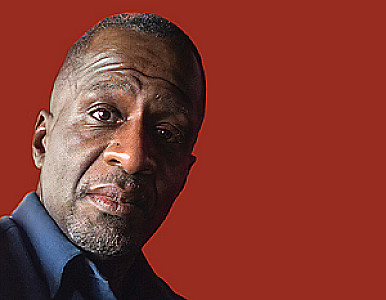English,
Description
Vocal Characteristics
Language
EnglishVoice Age
Middle Aged (35-54)Accents
North American (General) North American (US General American - GenAM) US African AmericanTranscript
Note: Transcripts are generated using speech recognition software and may contain errors.
That is to say he understood the old adage, you have to be twice as good a mantra. Most black folks were taught growing up as well as the fact that his gayness would be both a hindrance and an asset within the academy depending on the context and how that identity marker would be consumed by his students, colleagues and critical interlocutors. Working his way through graduate school at the height of queer theory and during the nascent stages of black queer studies meant that Woodard had to negotiate, mastering the established feel of queer studies while also following in the footsteps of his peers and mentors who were waging a critique against queer theories and blind spots to race. In some ways it was the best time to be in graduate school to take advantage of the explosion of new work and to be a part of the theoretical and political conversations generated by scholars and activists committed to legitimizing sexuality studies in the academy. But in other ways the late 1990s and the early 2000s were a challenging time for graduate students who sometimes were overwhelmed by the sheer volume and multiple twists and turns of this emerging scholarship and who sometimes felt trapped professionally and politically in a world where just the mere topic of their dissertation or who their advisor was could determine whether or not they were taken seriously as scholars or if they would be viable on the job market Vincent. And I discussed all of this and, moreover, emails and visits during the early years of our friendship, although he thought of me as a mentor as much as he did as a friend. It was always I who was impressed with the way his mind worked. I'll never forget. For example, the first time he discussed with me, his ideas about writing about cannibalism and homoeroticism at the time, there was nothing I could offer by way of feedback or encouragement, mainly because I thought it would be too intellectually ambitious to implicate those two topics in the context of slavery. I became a believer. However, when Vincent sent me the first draft of his manuscript in 2005, then titled recovering the blackmail womb slavery, Homoeroticism in 19th century racial uplift. I wrote notes and questions on just about every page because the ideas were so provocative, I was still unsure, however, if he would be able to successfully pull together everything that he wanted to say and justify all of the claims that he was making. The turning point came in 2006 at the American Studies Association Conference in Oakland California, where Vincent delivered a paper entitled Blood Magic and Sorcery in the State Formation Archive, in which he laid out what would become the key terms of delectable ***** as unearthed in the archive consumption, hunger, homoeroticism and slavery. It seemed the entire conference was abuzz with talk about Woodard's paper and it would be the turning point for Woodard as he began to hone in on two topics that were too taboo for even the most courageous of academics, cannibalism and same sex desire under slavery. For those who knew Vincent Woodard and understood his genius. The theorizing and analysis contained in the chapters of this book will come as no surprise. And for those who experience it for the first time, they will be in for a treat. Vincent knew how to tell a good story and this one is his finest and he knew it. That is why in the final days of his life, he told his colleague, john Michael Rivera at the University of Colorado boulder to make sure that this manuscript got to Dwight a Mcbride and to me so that we could see that it got published. And that is what Dwight and I have worked toward for the past five years with the assistance of Justin a Joyce and a host of undergraduate and graduate research assistants and quietly but persistently urging us on have been his parents vera and Cedric Woodard who have waited patiently to see the fruits of their son's labor. I am still in denial about Vincent's passing because I feel his presence so viscerally, He was immediately recognizable as a gender queer that day in 1999 in Austin when
